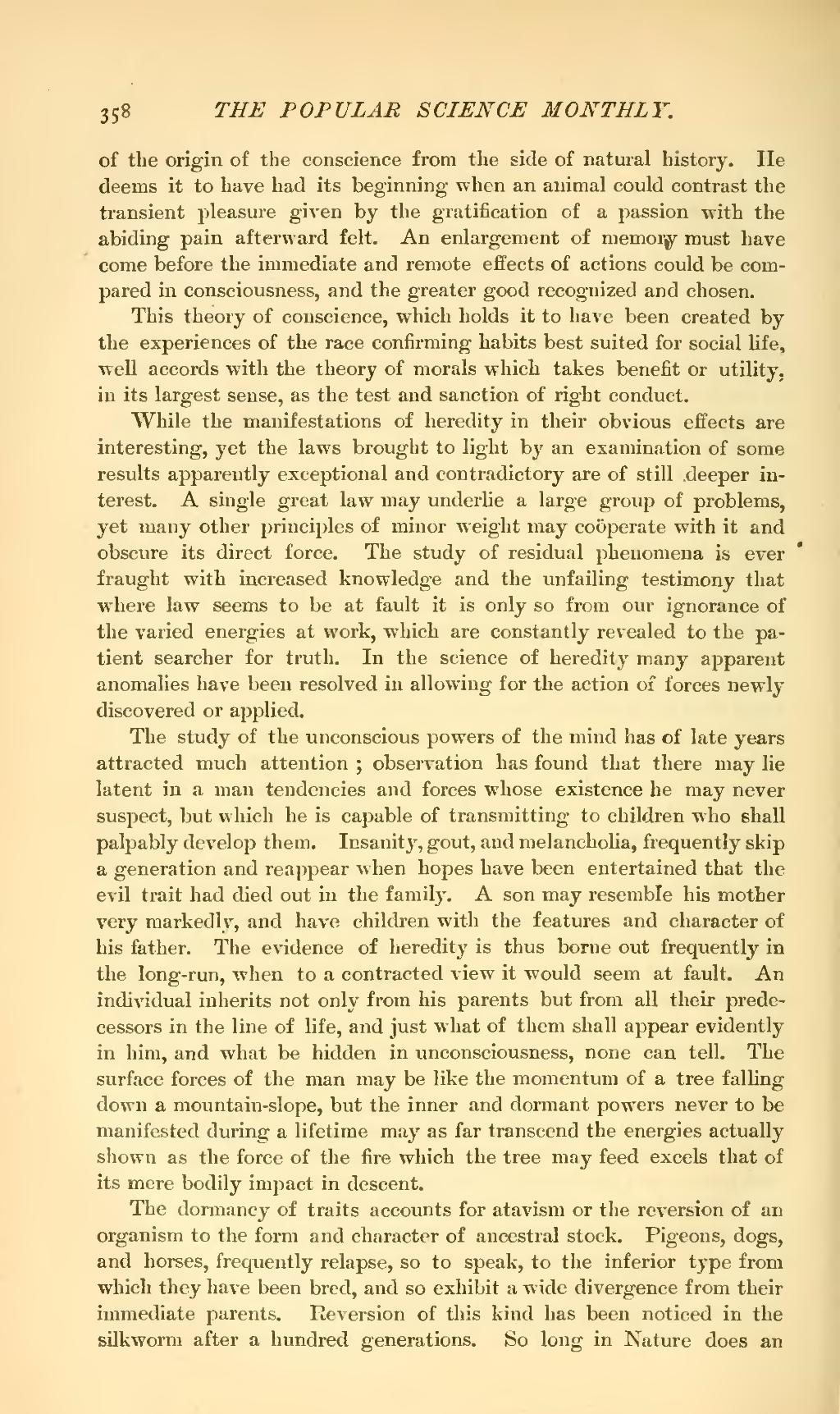of the origin of the conscience from the side of natural history. He deems it to have had its beginning-when an animal could contrast the transient pleasure given by the gratification of a passion-with the abiding pain afterward felt. An enlargement of memory must have come before the immediate and remote effects of actions could be compared in consciousness, and the greater good recognized and chosen.
This theory of conscience, which holds it to have been created by the experiences of the race confirming habits best suited for social life, well accords with the theory of morals which takes benefit or utility, in its largest sense, as the test and sanction of right conduct.
While the manifestations of heredity in their obvious effects are interesting, yet the laws brought to light by an examination of some results apparently exceptional and contradictory are of still deeper interest. A single great law may underlie a large group of problems, yet many other principles of minor weight may coöperate with it and obscure its direct force. The study of residual phenomena is ever fraught with increased knowledge and the unfailing testimony that where law seems to be at fault it is only so from our ignorance of the varied energies at work, which are constantly revealed to the patient searcher for truth. In the science of heredity many apparent anomalies have been resolved in allowing for the action of forces newly discovered or applied.
The study of the unconscious powers of the mind has of late years attracted much attention; observation has found that there may lie latent in a man tendencies and forces whose existence he may never suspect, but which he is capable of transmitting to children who shall palpably develop them. Insanity, gout, and melancholia, frequently skip a generation and reappear when hopes have been entertained that the evil trait had died out in the family. A son may resemble his mother very markedly, and have children with the features and character of his father. The evidence of heredity is thus borne out frequently in the long-run, when to a contracted view it would seem at fault. An individual inherits not only from his parents but from all their predecessors in the line of life, and just what of them shall appear evidently in him, and what be hidden in unconsciousness, none can tell. The surface forces of the man may be like the momentum of a tree falling down a mountain-slope, but the inner and dormant powers never to be manifested during a lifetime may as far transcend the energies actually shown as the force of the fire which the tree may feed excels that of its mere bodily impact in descent.
The dormancy of traits accounts for atavism or the reversion of an organism to the form and character of ancestral stock. Pigeons, dogs, and horses, frequently relapse, so to speak, to the inferior type from which they have been bred, and so exhibit a wide divergence from their immediate parents. Reversion of this kind has been noticed in the silkworm after a hundred generations. So long in Nature does an

